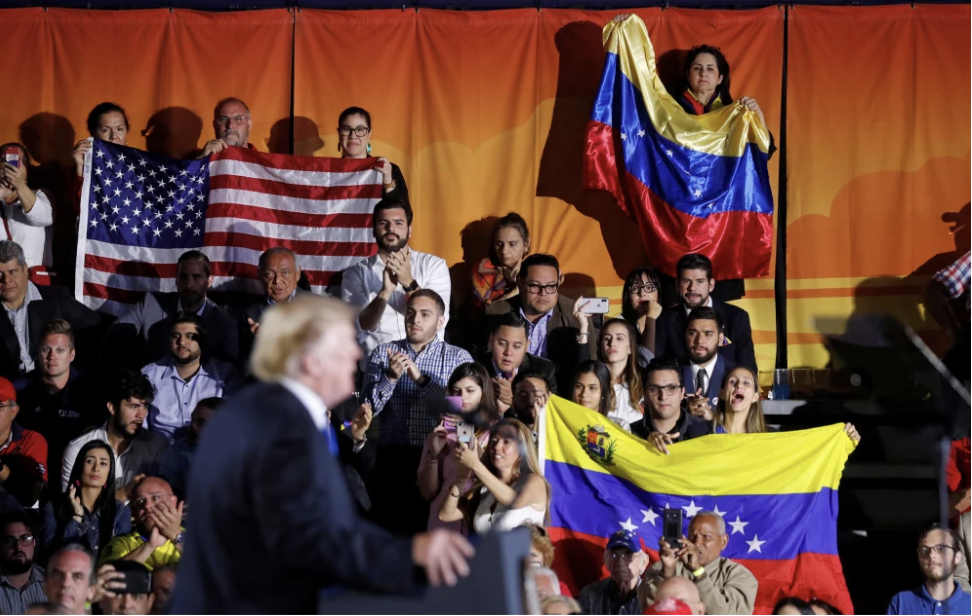Photo via Kevin Lamarque/Reuters
***
United States President Donald J. Trump announced that the U.S. government carried out a premeditated missile strike on a Venezuelan boat allegedly transporting drugs to the U.S. As of September 15th, 11 passengers were confirmed dead. The strike is the second attack in a series of cartel-targeting campaigns launched by the Trump administration.
The initial strike took place on September 3rd, targeting alleged members of the Venezuelan Tren de Aragua gang. Trump claimed the 11 passengers killed in the attack were gang members attempting to traffic illegal substances into the U.S. While Tren de Aragua is involved with human trafficking, extortion, and control of Venezuelan drug routes, there is no evidence of drug trafficking across international borders. When asked to comment on the US government’s justification of the attacks, Trump stated, “All you have to do is look at the cargo that was … spattered all over the ocean. Big bags of cocaine and fentanyl all over the place.” The Trump administration has not provided any evidence of this cargo, calling into question the attack’s validity.
These attacks are a product of Trump’s realist policies, fused with his administration’s anti-immigration rhetoric. Realist foreign policy assumes nations have discrete borders and interact with each other out of self-defense. There is minimal trust, transparency, or cooperation. While realism isn’t inherently problematic, its relationship to the legality of the Venezuelan attacks is called into question. Despite Trump’s personal justification, the strikes were carried out without congressional approval, and few were consulted before the strike took place.
Democrats and Republicans alike have called into question whether the attacks represent an overstep of Trump’s presidential authority. On Tuesday, Senator Lindsey Graham, a South Carolina Republican, asked FBI director Kash Patel what the Trump administration’s legal justification was for using direct military strikes. Patel declined to comment, instead stating, “We will hunt down every single one of those narco-traffickers.” Despite the lack of transparency on the Trump administration’s end, both attacks align with Trump’s interpretation of realism, most commonly referred to as the “America First” policy.
“America First” is a pragmatic foreign policy approach that prioritizes protecting U.S. interests above all else. Unlike presidential foreign policy paradigms of the past 50 years, which tend to abide by the rules of liberal international order established post World War II, “America First” rejects these norms. Instead, America’s new age of foreign policy optimizes the US military at the expense of the international order that has shaped international relations for decades. Trump set the precedent for these attacks and all other “America First” policies during his inaugural address, stating that, “It is the right of all nations to put their own interests first.”
The liberal international order is a foreign policy framework that relies on international institutions and free markets to sustain global peace and security. It relies heavily on economic institutions to encourage states to act accordingly and prevent arbitrary abuses of power. The application of Trump’s “America First” policy, and its inherent conflict with liberal internationalism, is difficult to ignore in the Venezuelan attacks. In an attempt to supposedly preserve US interests and protect the country from drug traffickers, Trump enacted questionable, possibly even arbitrary, military action that ignored America’s checks and balances, relying on speculation, further damaging the US’s international image.
Venezuelan President Nicolás Maduro commented on the attacks earlier this week, stating that the strikes were a “heinous crime” that violated international order and served ulterior motives in relation to oil, rather than cartel busts. As of September 19th, draft legislation is circulating at the White House which would grant Trump the authority to enact military action against terrorist cartels, regardless of whether congressional approval was provided. Where this bill goes, and what it means for America’s already tumultuous foreign policy over the past year, will be determined within the coming months.
***
This article was edited by Sinhawe Haji and Georgie Javier.
